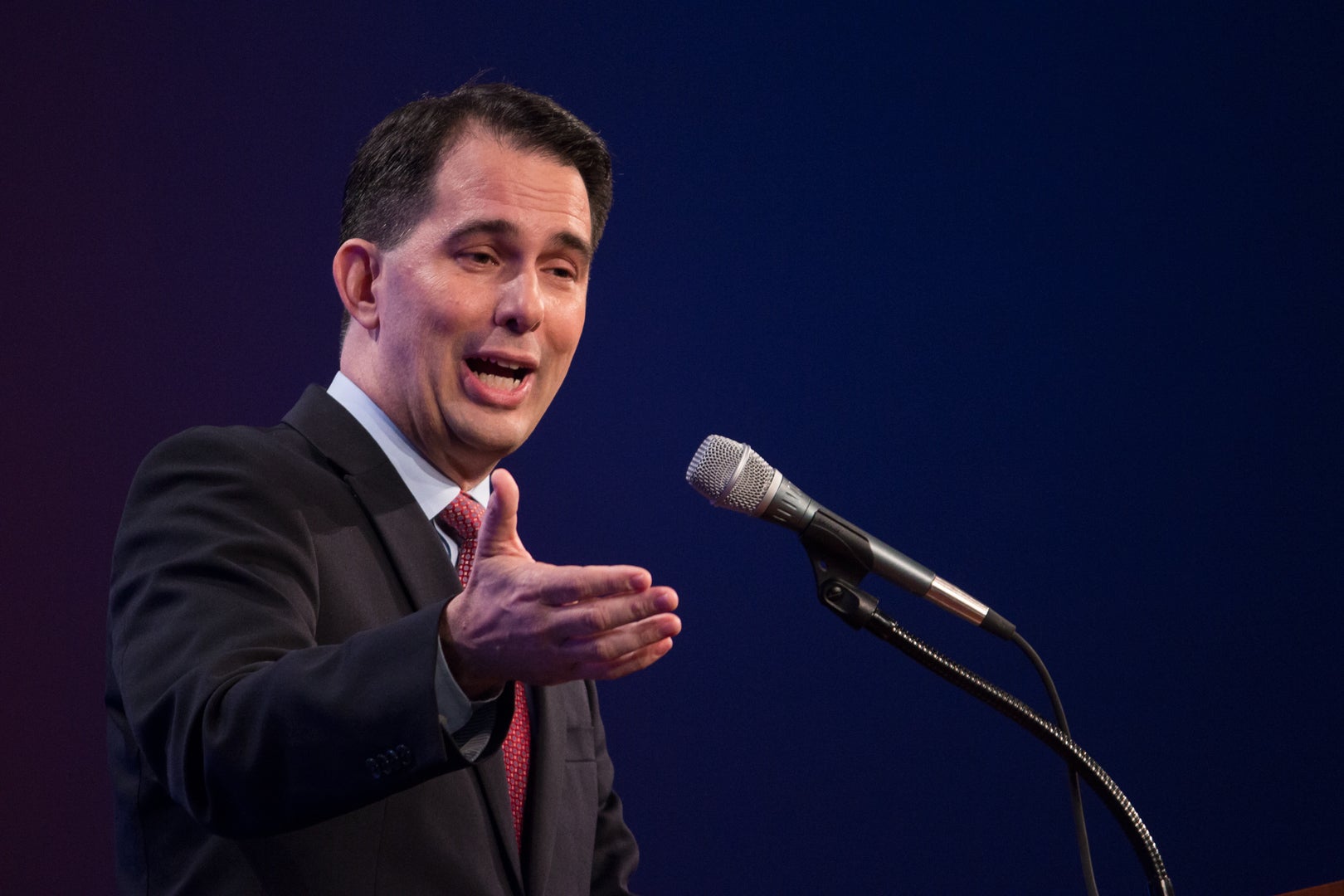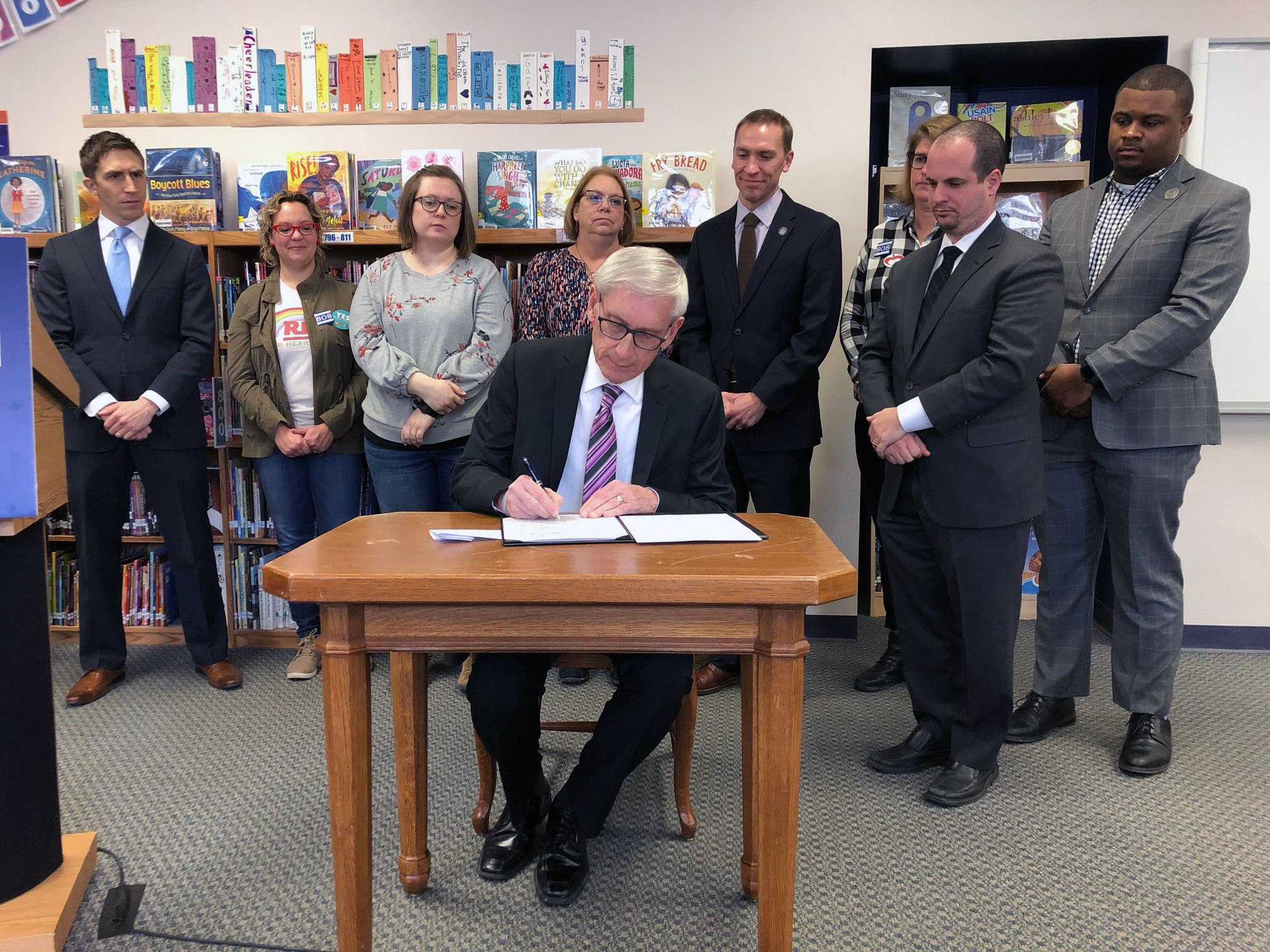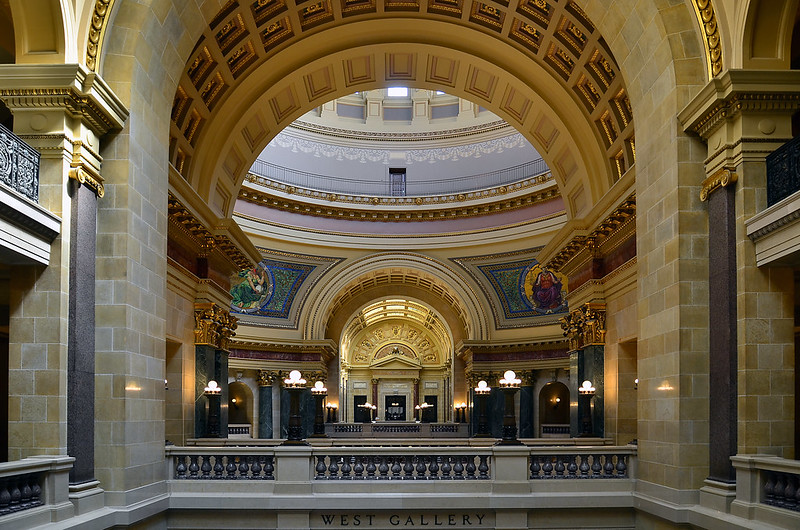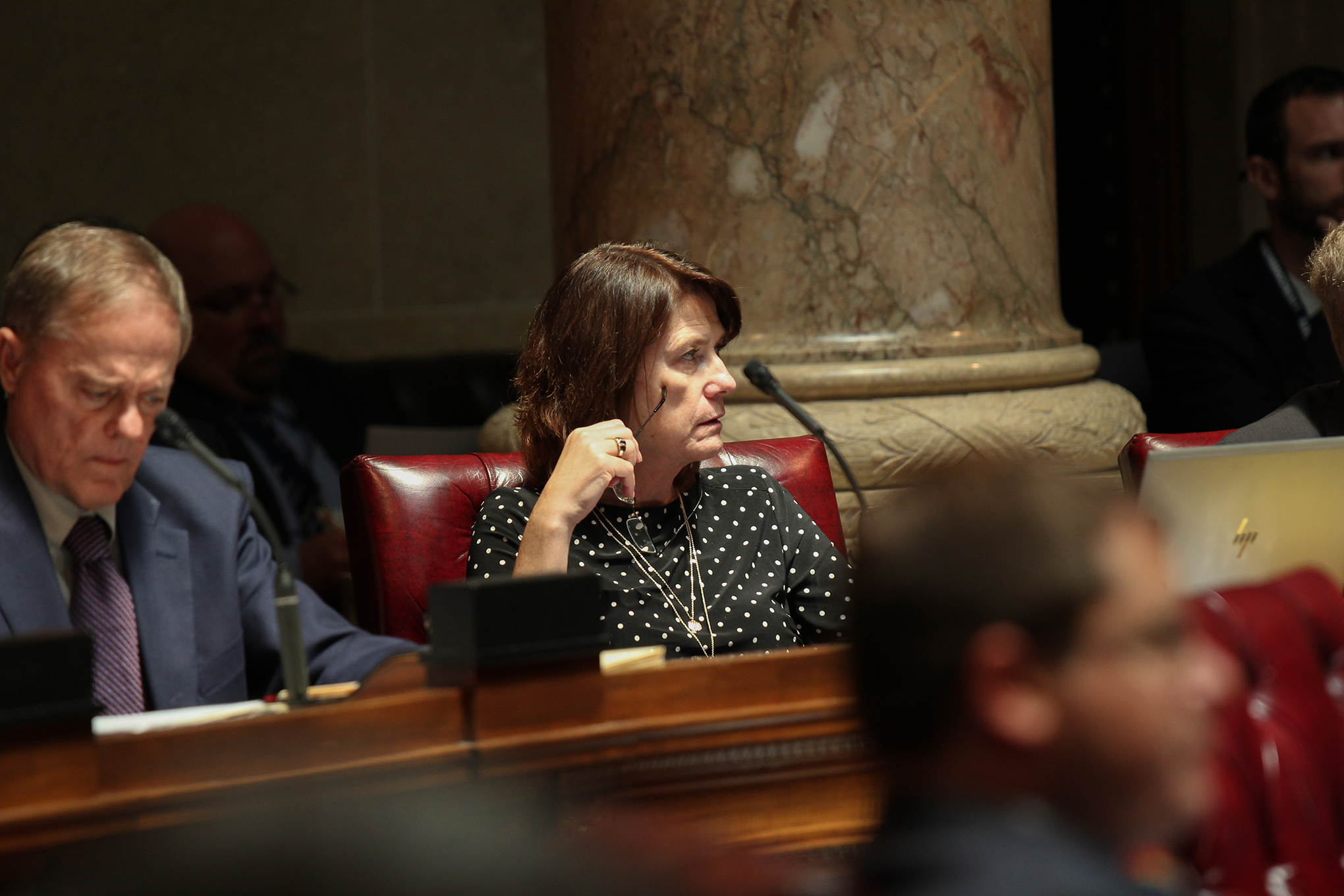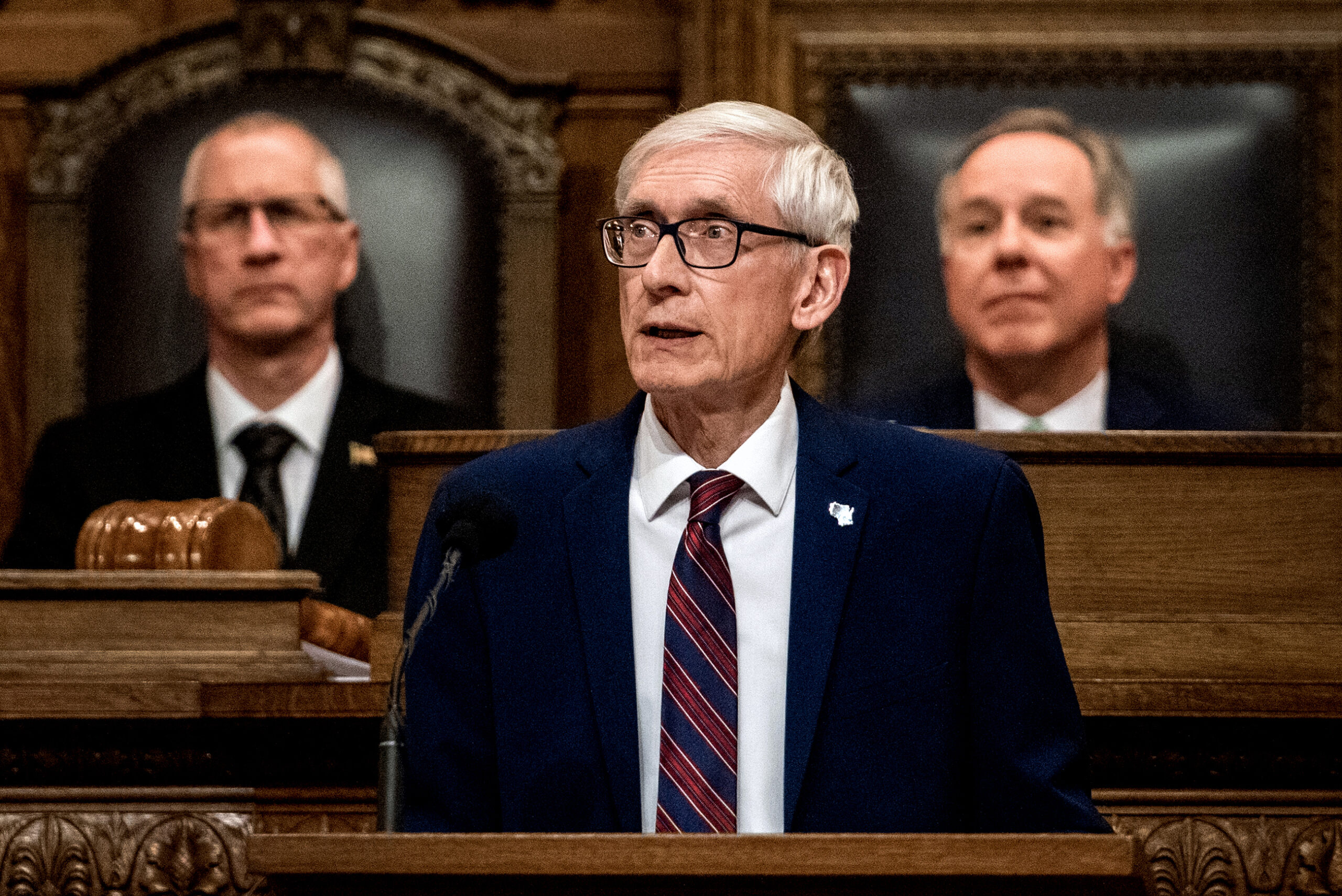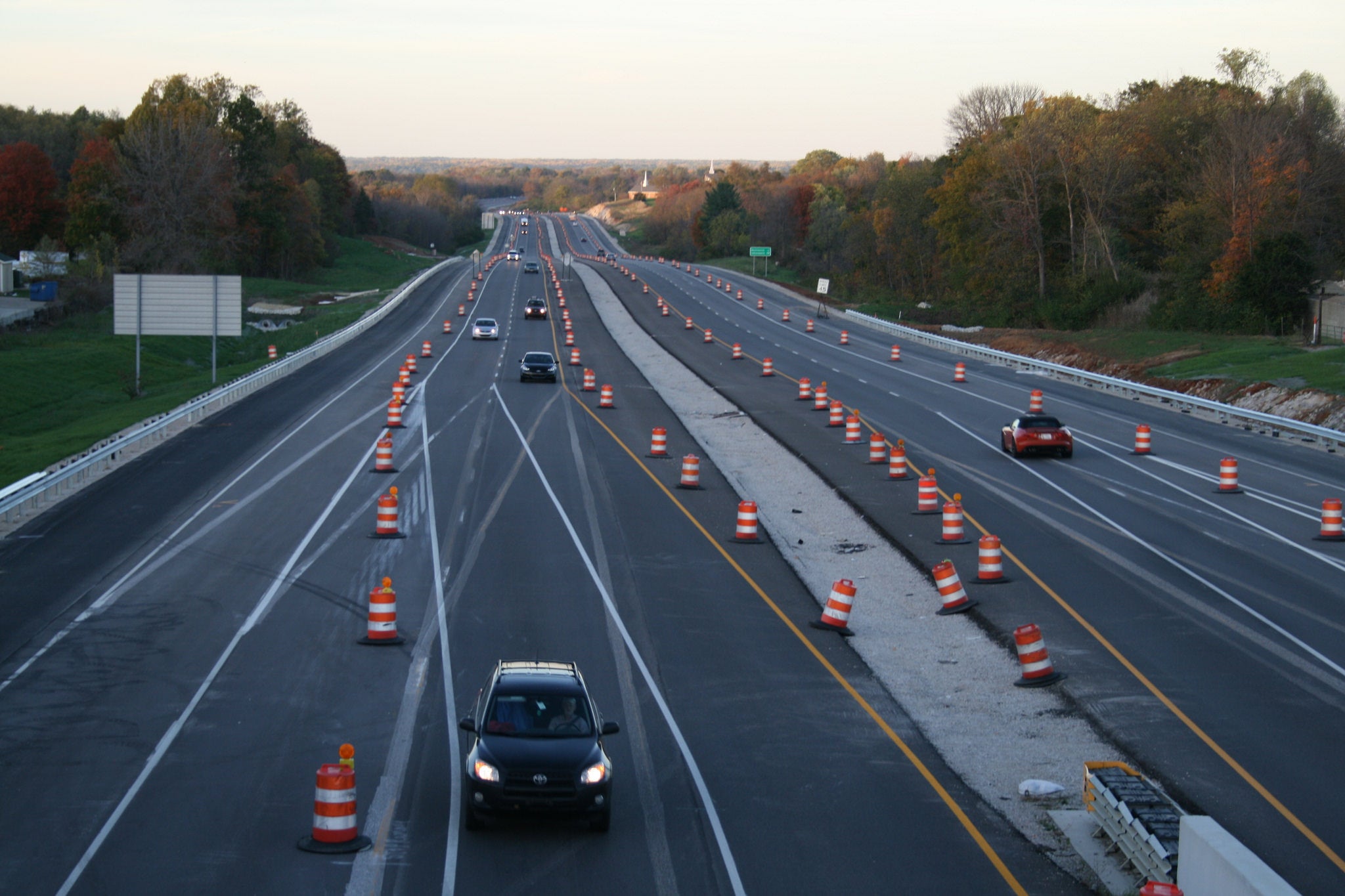Gov. Scott Walker is asking state business leaders to help him convince members of the Legislature’s Joint Finance Committee to approve millions dollars in bonding to fund road building in Wisconsin.
The governor’s transportation secretary sent a letter to the committee on Monday asking for $350 million in bonding to prevent delays in five road projects in the Fox Valley and Dane and Rock counties.
In a speech to the Wisconsin Manufacturers and Commerce annual conference on Tuesday, Walker said he needs help winning approval of those funds.
Stay informed on the latest news
Sign up for WPR’s email newsletter.
“We’re making up for what was raided many years ago from the previous governor and the previous Legislature,” Walker said. “We need to get back to that point of strength. It’s incredibly important to the state’s economy. So, I would encourage you all here to a least think about reaching out to the members of the Legislature, particularly in the state Senate.”
State Sen. Alberta Darling, the Republican chair of the committee, opposes the bonding, calling it unsustainable.
Some Democrats also oppose borrowing to fund state roads, especially when payment on the bonds would drain state dollars used to pay for schools and health care. They support raising the gas tax as a long-term fix.
Speaking at the conference, WMC President Kurt Bauer also endorsed a higher gas tax, along with a hike in vehicle registration fees and possibly a sales tax to fund roads. He also urged state policymakers to consider getting federal approval for toll roads.
But, Walker sought to undercut opposition to the bonding approach. He said the $350 million in bonding is already in the budget and if approved, would represent the lowest level of state bonding in 20 years.
Wisconsin Public Radio, © Copyright 2024, Board of Regents of the University of Wisconsin System and Wisconsin Educational Communications Board.

